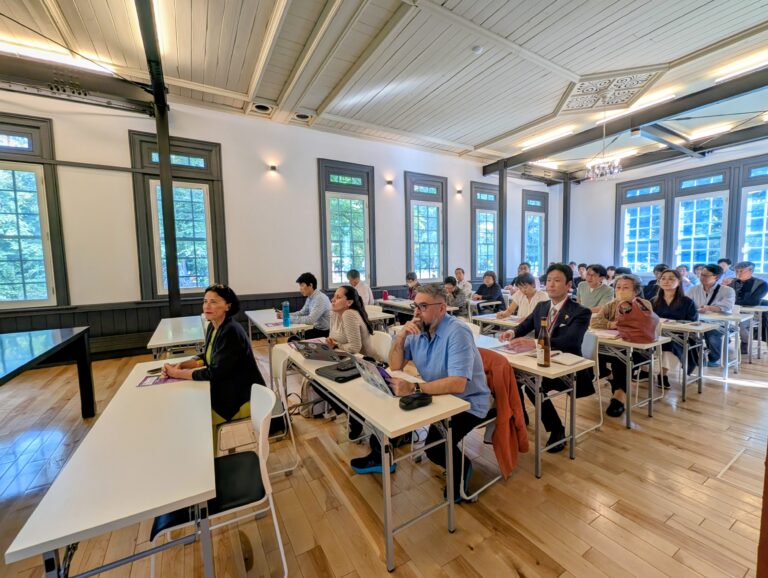
On the 26th of September, University of Melbourne (UoM) academics in Wine Studies visited the Center of Education and Research for Hokkaido Wines at Hokkaido University (HU) and held the HU-UoM Workshop – Terroir, Country and Fu:do (風土): Respecting a sense of place in Pinot Noir wine regions. This workshop was jointly organized by two enthusiastic wine experts: Professor Teruo Sone, Director of the Center and a member of the Research Faculty of Agriculture at HU; and Professor Jacqueline Dutton, Professor of French Studies and Co-Chair of the Sustainability and Climate Change of the Global Humanities Alliance in the Faculty of Arts, UoM. It was a kick-off event to connect academia and wine regions in Victoria and Hokkaido, where global warming has caused significant changes in recent years.
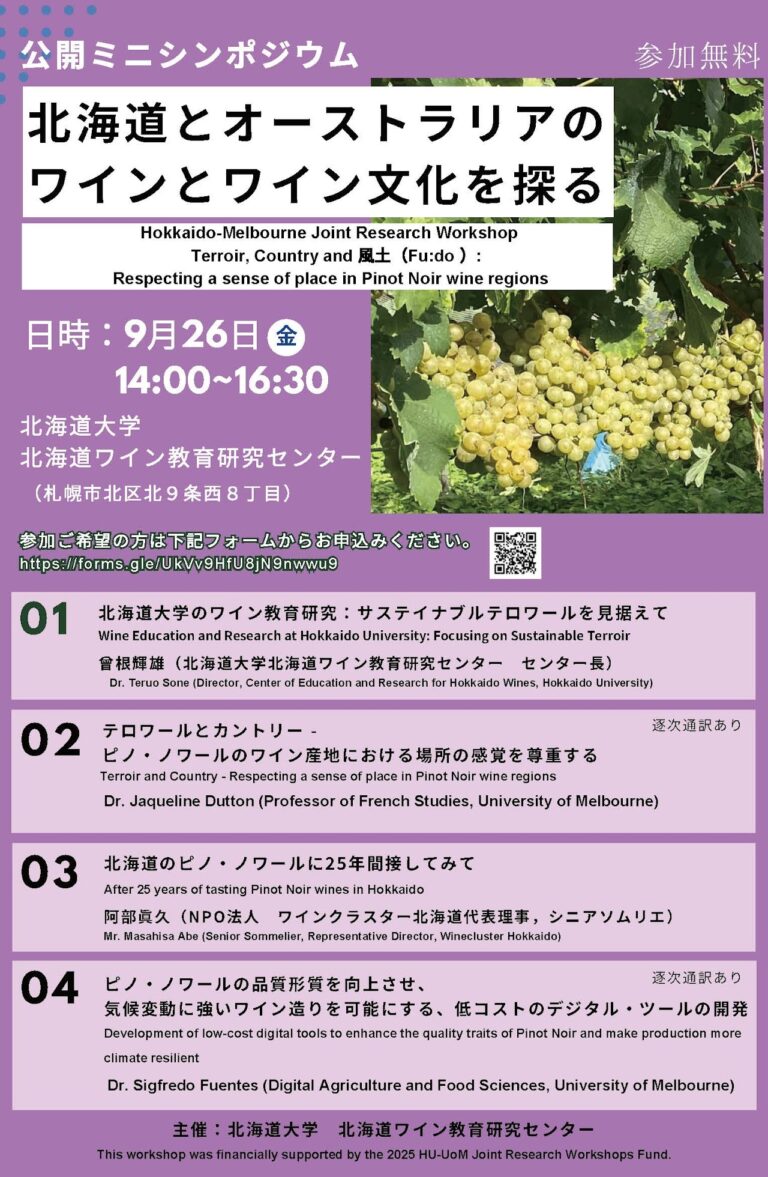
Professor Dutton is the Founding Director of the Pinot Noir Project, an international hub for knowledge exchange to explore the appeal and challenges of Pinot Noir both from cultural and scientific perspectives. She had curated international festivals in Australia, France, and Myanmar as an expert in French Studies and Gastronomy. She was accompanied by her UoM colleagues: Associate Professor Sigfredo Fuentes in Digital Agriculture and Food Sciences; Senior Lecturer Pangzhen Zhang in Food and Wine Science; and Dr. Claudia Gonzalez Viejo Duran in Food Engineering.
Welcoming Director Masahisa Abe from the NPO Wine Cluster Hokkaido as a local sommelier and Senior Academic Specialist Taena Uemura from the Office for International Collaborations as the interpreter, Professor Sone arranged the Friday afternoon event as an opportunity to share knowledge on Pinot Noir with approximately thirty local audiences.
Pinot Noir is a grape variety that expresses the character of its terroir, including the most subtle changes in soil and climate. Having established a status as a high-end wine and responding to climate change and the transforming world market, Pinot Noir now finds its production areas spread across the globe.
Professor Sone outlined the Center's initiatives to collaborate with Yoichi Town, a major production area for Hokkaido wines, and to pursue a sustainable terroir that benefits both wine producers and regions through extensive activities of the University. Mr. Abe recalled his experiences after he had left Hokkaido Wine Co., Ltd., and explained the progress of Pinot Noir production in Hokkaido over the past two decades, and the shifts in production volumes by varieties that have been deeply linked with
climate change.
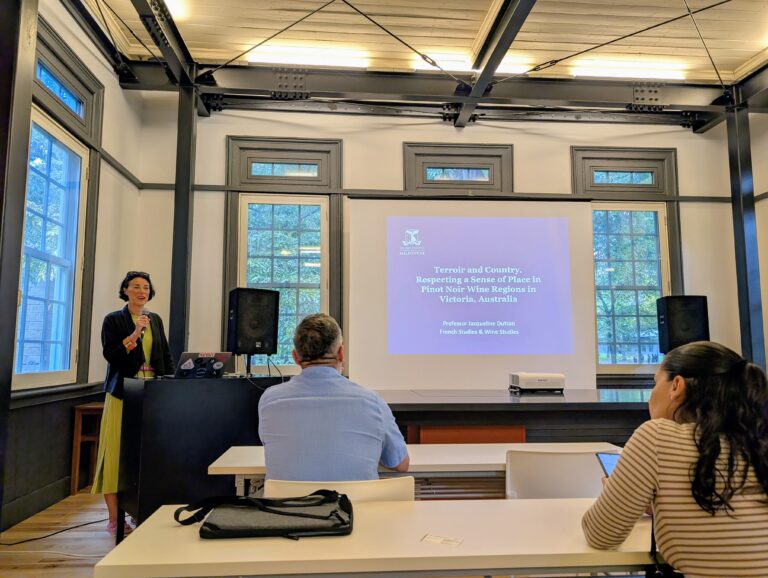
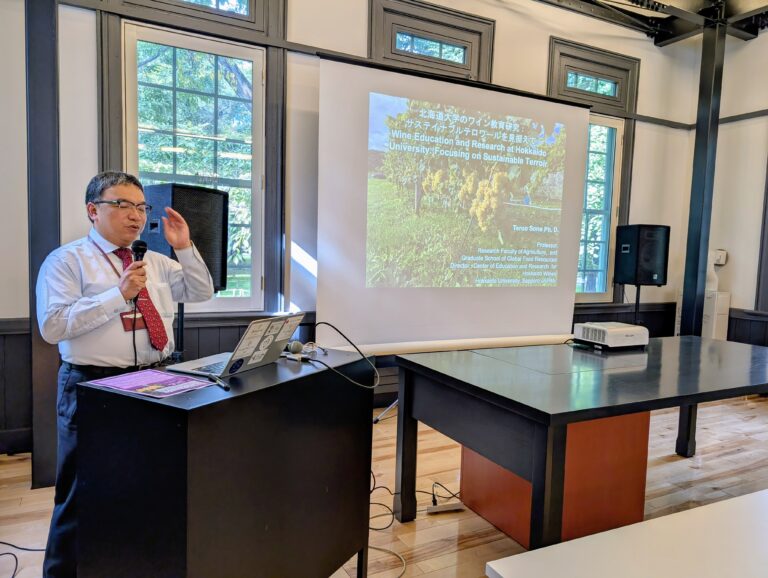
Professor Dutton delivered a talk on how, for Indigenous peoples in Australia, the word 'Country' (which shall be written with a capital letter) carries profound significance. It encompasses not merely a nation, but environments (land, waterways, and sea), family and kinship, customs and culture, and the very sense of belonging which cannot be fully interpreted by English words. She noted that even within the same Pinot Noir regions, the concept of terroir differs between terroir in France, Country in Australia, and Fu:do in Japan.
Associate Professor Fuentes introduced a wide range of his app developments, including Irrimax for monitoring soil moisture and nutrient patterns; Inspector Paw for small animal biometrics to detect pests; VitiCanopy for estimating vine vigour and canopy air gap ratio in wine grapes; and BioSensory for measuring physiological and emotional responses during sensory evaluation. He also shared ongoing research with low-cost electronic noses, AI, and drone applications, such as Wine and Beer Aroma Characteristic Evaluation, Smoke Damage Detection in Grapes and Evaluation/Prediction of Residual Smoke Odour in Wine, and Plants for Space (P4S) which has been selected as the Australian Research Council (ARC)'s Centre of Excellence.
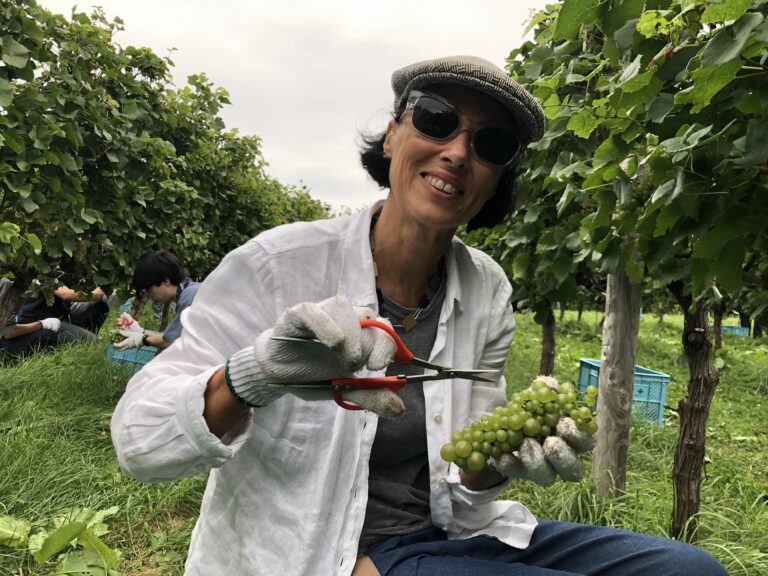
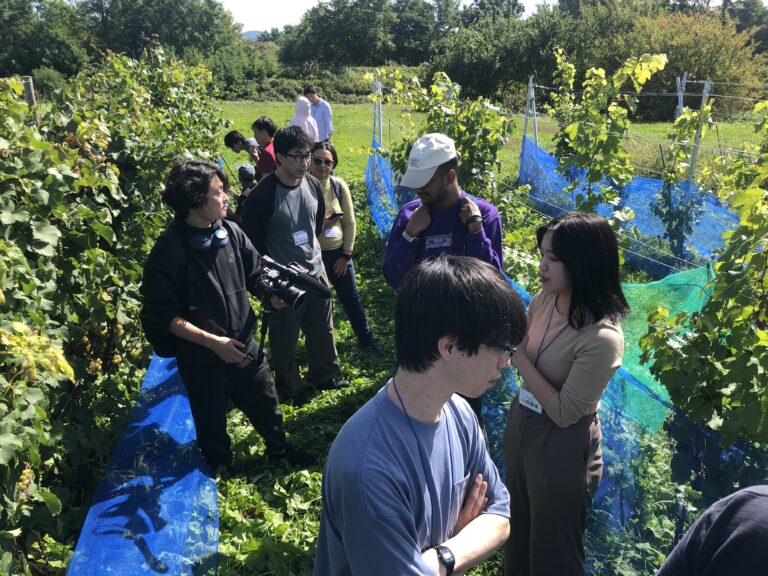
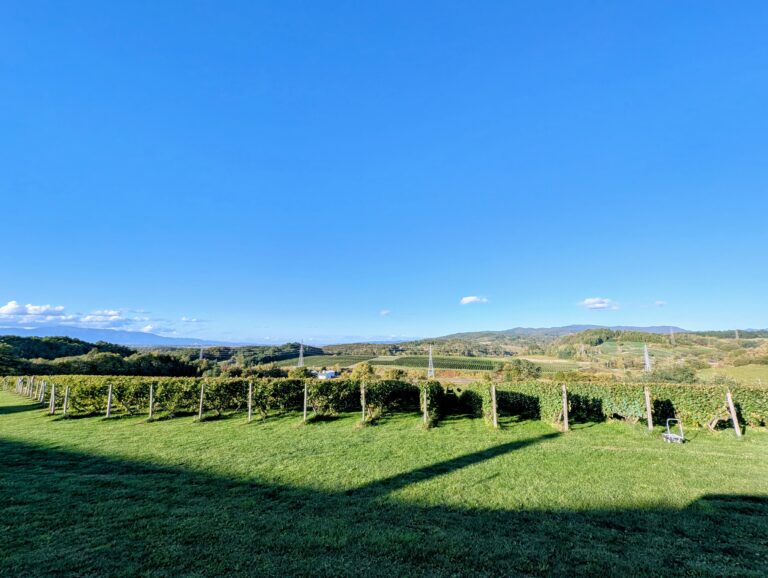
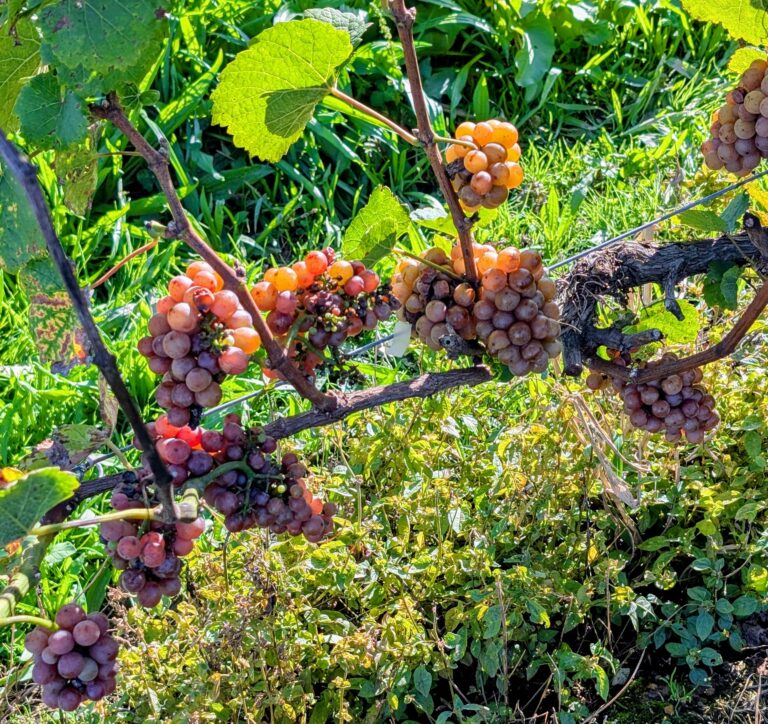
Besides the event, the delegates paid a visit to the wine-producing areas in Yoichi and Sorachi regions of Hokkaido, including Hirakawa Winery, Domaine Takahiko, Nikki Hills, Housui Winery, and Yamazaki Winery. They discussed with producers about grape varieties and wine differences which stem from soil conditions and mineral content delivered from ancient strata such as the Kawabata Formation (the Langhian Stage) and Iwamizawa Formation (the Tortonian Stage). The interdisciplinary workshop week concluded successfully, with anticipation for future expansion into gastronomy and cultural events in Pinot Noir studies, and potential development of joint modules and co-supervision at the HU's Graduate School for Global Food Resources and UoM's Wine and Food Studies.
(Text and photos provided by the Research Faculty of Agriculture and Office for International Collaborations)






